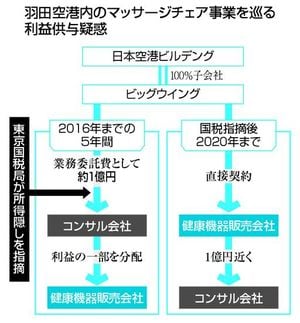Warren Buffett, often dubbed the "Oracle of Omaha," has made headlines once again as his investment firm, Berkshire Hathaway, embarks on a notable reduction of its stake in Bank of America (BofA). The total share sales, which commenced in mid-July, have amounted to around $3.8 billion over the course of twelve consecutive trading days. This trend raises questions regarding Buffett's strategy, especially given the bank’s otherwise strong performance this year.
The series of sales began during a period when Bank of America's stock had surged impressively by around 31% in the first half of the year. However, following Buffett's move, the stock has dipped approximately 10% to about $39.50, reflecting a broader sentiment that may align with concerns over Federal interest rate adjustments and potential economic slowdowns.
Specifically, from July 22 to August 1, Berkshire has reportedly sold a staggering 52.8 million shares of Bank of America. According to regulatory filings released late Thursday, Buffett's transactions started as he unlocked $779 million in profits during an emerging selling spree.
This reduction in holdings amounts to roughly 8.8% of Berkshire's total stake since before the sales began. As it stands, Berkshire holds approximately 942 million shares of the Charlotte, North Carolina-based lender, which still positions it as the largest shareholder in the company. This stake, valued at approximately $37.2 billion based on the latest price, continues to provide a soft cushion amidst the shifting market dynamics.
Buffett's rationale for these recent stock movements remains largely speculative, given his usual practice of maintaining transparency with investors regarding significant portfolio adjustments. Historically, his investment strategy has focused on long-term value rather than day-to-day fluctuations. Remarks made by Buffett in previous years conveyed confidence in Bank of America's leadership, specifically praising CEO Brian Moynihan—an indication that there may not be a fundamental lack of faith in the bank itself.
Indeed, in January 2023, Buffett remarked, "I invited myself in years earlier, and they made a very decent deal for us. I like Brian Moynihan enormously, and I just don’t want to sell it." These statements reflect a deeper historical relationship between Buffett and the bank; he initially invested $5 billion in 2011, acquiring shares when they were trading quite low, close to $5 each. This act of faith not only bolstered the bank's credibility post-2008 financial crisis but also enriched Buffett substantially, leading to some stark profits.
Market analysts and investors are left guessing the underlying motives behind such a significant withdrawal given the still-optimistic stock performance of Bank of America. While there could be diversification motives, some experts posit that Buffett may be positioning his portfolio to absorb future losses as signs of an economic downturn potentially loom.
At this moment, the broader economic environment could be influencing Buffett's decisions. Interest rates are projected to decrease in upcoming months, increasing speculation in sectors aside from banking and potentially realigning investments towards companies like Occidental Petroleum and Liberty Media, which Buffett is reportedly bullish on.
This selling pattern isn't exclusive to Bank of America. Berkshire Hathaway has also sold a notable slice of its Apple holdings, exiting about 115 million shares in Q1 of this year. This is particularly curious, considering Apple's strong brand presence and market resilience, indicating a potential shift in Buffett's approach towards technology stocks.
Moreover, amid these transactions, there lies an air of caution. The market has observed a recent selloff, which has been described as violent, leading some analysts to suggest that Buffett's actions could be interpreted as an early warning signal regarding market conditions. The rising fears of looming recession trends—with speculation surrounding the stock market adjusting itself to reflect future macroeconomic factors—add a layer of complexity to his currently publicized moves.
Particularly concerning are the comments from investment heavyweights like Bill Gross, cautioning investors against buying the dip as the sentiment shifts dangerously towards bearishness. Gross has alluded that the stock market could be nearing an inflection point, where one should tread carefully in the face of economic uncertainties.
The excitement around such a charismatic figure like Buffett engaging in significant stock maneuvers naturally fuels the financial news cycles. Observers of the market will be closely following his next moves, as his actions often cause ripples well beyond his own investments. Thus, the ongoing saga of Buffett's involvement with Bank of America juxtaposed against the overarching economic landscape continues to evolve, bringing inevitably more scrutiny to the seasoned investor's strategies.
Investors worldwide feel the pulse of the market through Buffett's strategies, often interpreting them as barometers for market vitality or decline. As the days unfold and uncertainties linger in financial corridors, Buffett's dealings in Bank of America will remain pivotal not only to Berkshire Hathaway but to broader investor sentiment as well.
Ultimately, whether these sales are a strategic withdrawal for diversification, a response to market trends, or simply a case of profit-taking will be a narrative that unfolds as Buffett and his team navigate through this increasingly complex financial climate.



